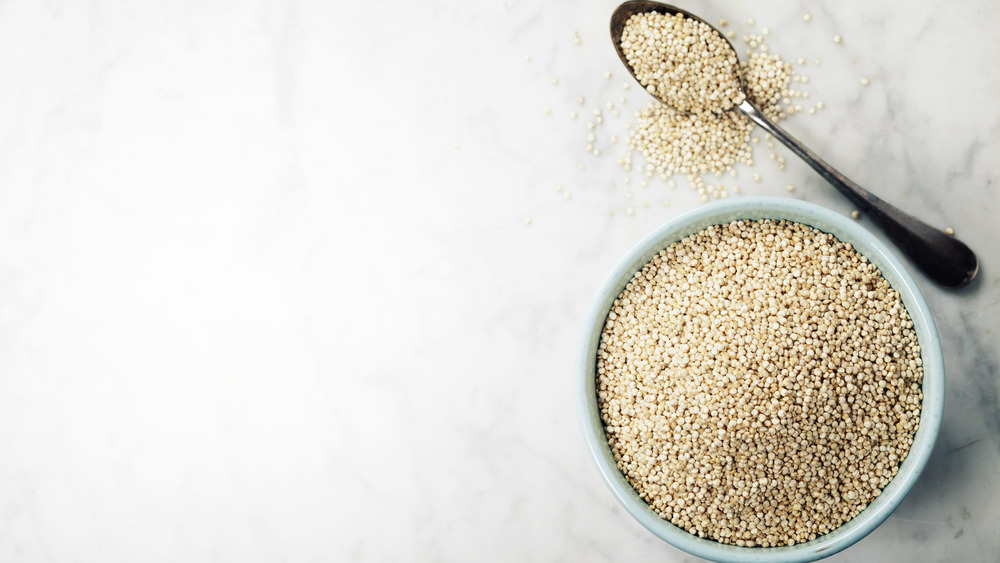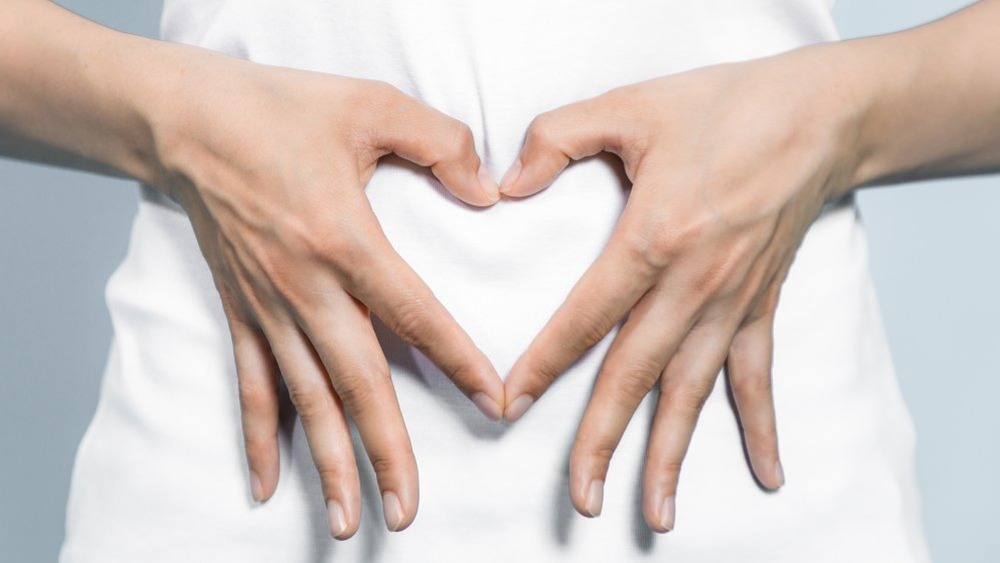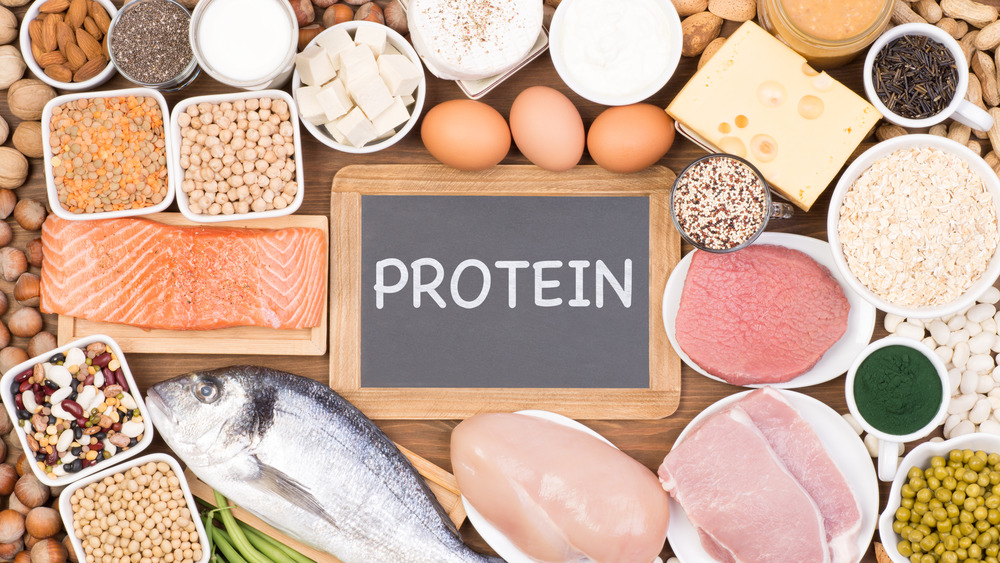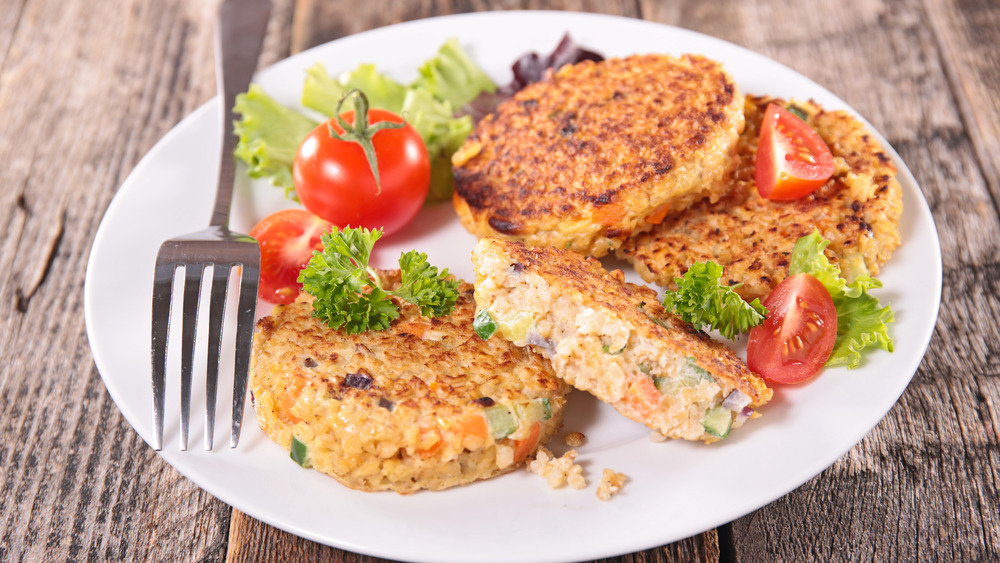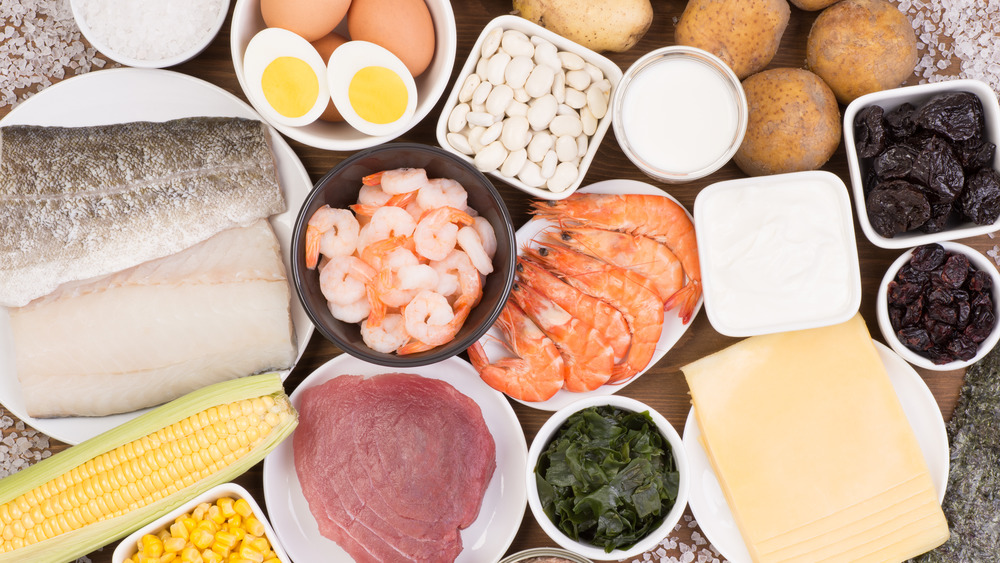Here's What Happens When You Eat Quinoa Every Day
Quinoa, hailed as a super-grain, is as seemingly ubiquitous these days as it is hard to pronounce. (Who among us, after all, would have the slightest idea that we were supposed to say KEEN-wah, had we not been corrected numerous times by irate hipsters?) While it is credited with the power to cure all bodily ills as well as raise our credit rating 100 points (no, wait, is that the Experian Boost cow? we get those mixed up) and possibly even allow us to fly, is quinoa really something we should be eating every single day? After all, even the super-est of superfoods have their downsides.
Healthline notes that some people are allergic to quinoa, and it can cause them to experience symptoms including itching, rashes, nausea, vomiting, and diarrhea, while Thrillist reveals that quinoa, a high-fiber, protein-rich food, will not only cause you to fart like a Russian racehorse, but your emissions will be room-clearingly foul, as well. Still want to chow down on a bowl of quinoa? We spoke to Elizabeth Klingbeil, PhD RDN, an assistant professor of Nutrition at Rhode Island's Johnson and Wales University, to get her opinion on this ancient grain (which is actually not a grain). She did say that while quinoa is overall very healthy as advertised, as with all foods, it's best eaten in moderation.
Quinoa helps keep your gut healthy
Quinoa, as previously mentioned in a flatulence-related context, is very high in fiber, and it also contains resistant starches. Apart from the obviously odoriferous downside, Klingbeil says that "intake of fiber and starches has been shown to promote a healthy gut bacteria population." One way these fibery, starchy foods do that do this is to "help promote movement of food through the GI tract" — in other words, eating quinoa will make you poop, which sure beats being constipated (this kind of makes it the more modern, trendy version of stewed prunes).
Klingbeil also tells us that high fiber food "promotes satiety," which means you may feel so full after eating quinoa that you won't have any room left in your belly for Flamin' Hot Cheetos (until you poop out all the quinoa, that is). Foods that are specifically rich in soluble fibers, as quinoa is, also have a non-scatological benefit, that of lowering blood cholesterol.
Quinoa shouldn't be your only source of protein
Quinoa is touted as a "complete protein," but what does this mean? Klingbeil explains that "there are certain amino acids that our body cannot make on its own, these are called 'essential' since we have to consume them through our diet." She goes on to say that complete proteins are nutrients that contain each of the essential amino acids, so if we eat them we are "ensuring that our body gets every amino acid needed to build proteins in our body." She compares amino acids to building blocks that are used to build protein and, in turn, to "form our muscles, cartilage, enzymes and many other necessary structures in our body."
Quinoa, however, is fairly low in one particular essential amino acid, that being lysine. If you were to have quinoa as the sole source of protein in your diet, you might become crucially low in lysine, in which case, according to Klingbeil, "your body will be unable to make proteins that require that specific amino acid," telling us that "this can result in detrimental impacts throughout your body's functions."
How you prepare quinoa has an impact on its nutrition
Quinoa, like most types of grain, doesn't really have a whole lot of flavor all on its own. If you're attuned to such subtle taste sensations that you can dine quite happily off a bowl of plain boiled plantlife, wonderful, you win at life, and yours is sure to be a long one, indeed. If you're like the rest of us, however, with our junk food-attuned tastebuds, you may need to enhance your quinoa with some butter, some cheese, a sprinkling of bacon bits, maybe a few ladles of gravy or even a small side of fried chicken...you know, just a little something to perk it up a bit.
In so doing, Klingbeil points out, "you may reduce the benefit of your quinoa consumption," particularly if you're partial to "drench[ing] your quinoa in high sources of saturated fats." She also cautions against adding excess salt to quinoa, warning that "high sodium intake can exacerbate high blood pressure." It seems the one superpower that no superfood has, is the power to counteract the effect of villain foods. Sadly, all too few superfoods also possess the power to taste better than their evil counterparts.
You don't need to eat quinoa to have a healthy diet
While Klingbeil does say that "there is no reason not to consume quinoa regularly if it is available to you and you like it," she readily admits that "someone does not have to have quinoa in their regular diet to have a healthy, well-balanced meal pattern." What's more, she goes on to say that "It is very easy to go overboard on any food item, and I never recommend someone to consume the same foods every day."
Basically, Klingbeil feels that, while "regular moderate intake of quinoa can be beneficial for your overall health...there is always a risk of too much of a good thing." Instead, she feels that healthy eating should include a wide variety of different types of food instead of relying on any one staple, no matter its benefits. Not to mention, the only way you're really going to be able to stick to any kind of eating plan is if you find nutritious foods that you actually enjoy. As Klingbeil advises, "I always encourage individuals to consume a large variety of foods that are to their liking." If quinoa fits into that category, feel free to consume it regularly, though not exclusively. If you're not a fan though, feel free to skip it and find other protein and fiber-rich foods that do float your boat.
